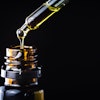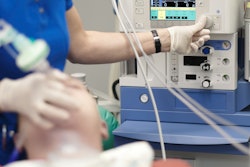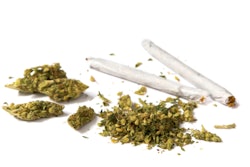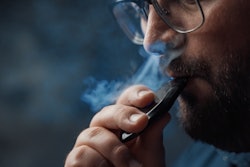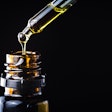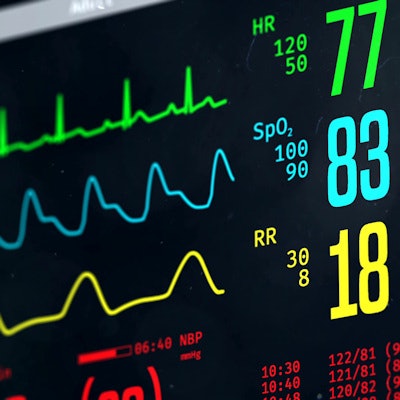
Patients undergoing IV sedation who test positive for cannabis may have vital signs and anesthetic requirements similar to those who don't have the drug in their systems, according to a small study published recently in the Journal of Oral and Maxillofacial Surgery.
Though patients who tested positive for cannabis' psychoactive element tetrahydrocannabinol (THC) needed higher doses of fentanyl and propofol during sedation, the presence of THC had no significant effect on medications after adjusting for factors, including age and weight, the authors wrote.
"To the author's knowledge, there are no similar studies documenting findings on THC and its effects on sedation in the oral and maxillofacial surgery literature," wrote the authors, led by Dr. Pooja Gangwani, MPH, an associate professor in the department of oral and maxillofacial pathology at the Temple University Kornberg School of Dentistry in Philadelphia (J Oral Maxillofac Surg, January 18, 2023).
Due to the increased availability, legality, and cultural acceptability of cannabis, its use has increased in the general population. About 50 million people age 12 and older reported using marijuana in the previous year, according to the 2020 U.S. National Survey on Drug Use and Health.
Currently, there is little research on how THC affects the vital signs and anesthesia requirements of individuals undergoing outpatient IV sedation. Additionally, it's not well understood if or how THC may change the body's response to medications used for sedation and the tolerance for dissociative agents.
To investigate THC's effects on a person's vital signs and anesthetic requirements during IV sedation, a retrospective cohort study of 53 patients was conducted. The patients were treated at an oral and maxillofacial surgery department between July 2018 and May 2022.
Due to the patients' history of recent drug use and their need to undergo IV sedation, they underwent toxicology screenings. Twenty-seven patients had urine test results that were positive for THC metabolites while 26 tested negative for THC metabolites. Patients who tested positive for other substances, including amphetamines, benzodiazepines, and opiates, were excluded.
During IV sedation, there was no statistically significant difference in the mean arterial pressure, respiratory rate, and heart rate between THC-positive and THC-negative patients. After adjusting for age, gender, and weight, THC had no significant effect on mean arterial pressure (p = .69), heart rate (p = .65), and respiratory rate (p = .47), the authors wrote.
In bivariate analyses, during IV sedation, THC-positive patients required, on average, larger doses of fentanyl [83.82 mcg vs. 65 mcg (p = .02)] and propofol [70 mg vs. 45.26 mg (p = .03)] compared to THC-negative patients. Yet, THC had no significant effect on midazolam (p = .28), fentanyl (p = .12), propofol (p = .06), and ketamine (p = .86) after the authors adjusted for age, weight, and gender, according to the study.
However, the study had several limitations, including the small study size, the authors wrote.
"Despite these limitations, this study brings its own significance as it assessed the effects of THC on the vital signs and medication requirements in patients undergoing IV sedation procedures in oral and maxillofacial surgery," Gangwani and colleagues wrote.

